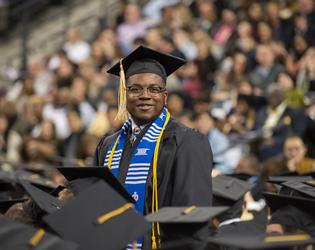The Council on Academic Affairs (CAA) is composed of the chief academic officers: provosts or senior vice presidents for academic affairs where they are a campus’s second ranking officer. The CAA provides a forum for discussion of: trends in higher education and the public mission; funding patterns and budget strategies; teaching and learning innovations; faculty roles and rewards; academic programs, planning, and advising; research and publication; and service and engagement with other sectors. The CAA advises the Council of Presidents and the APLU Board of Directors regarding association priorities and agendas in these areas.
The Council’s work is led by the Executive Committee and APLU’s Senior Vice President for Academic Affairs and Chief Academic Officer, Bernard Mair, who acts as the liaison between the CAA and APLU. The VPAA and his/her staff assist the CAA Chair and the Executive Committee in conducting the business of the CAA (handling logistics of meetings, registration, etc.) and serves as the chief point of contact for any CAA member who has questions or suggestions for the CAA or APLU in general.
The CAA meets to conduct business twice each year, at a summer meeting and at APLU’s annual meeting. Interested in reading about previous meetings? Find more here.




Stay Connected
X (formerly Twitter)
Facebook
YouTube
LinkedIn
RSS